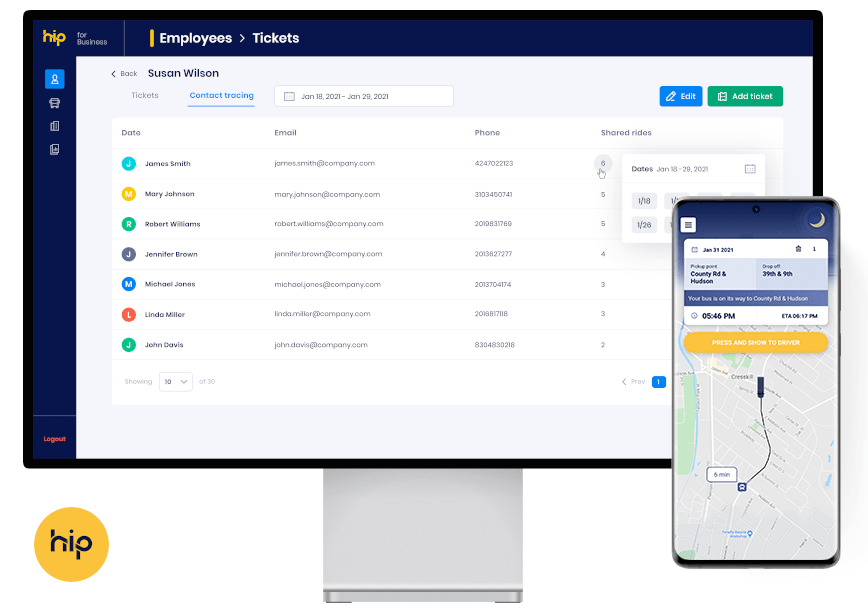Nearly a year ago, the spread of COVID-19 ended the daily commute for millions of Americans, an abrupt change that sent the ridesharing industry into a free fall.
Hip, which connected commuters with third-party bus and shuttle operators via an app, was just one of the many mobility-as-a-service startups that watched its clientele and revenue dwindle. Instead of cutting costs and waiting out the pandemic and the disruption it delivered, Hip expanded.
Hip added a business-to-business offering to its platform, a move aimed at companies and manufacturers preparing to bring back workers.
“Instead of holding back we actually doubled down and increased our platform,” CEO Amiad Solomon said in a recent interview, adding that the decision was prompted by discussions they had with large corporations that were struggling with how to safely bring employees back to the office.
The bet has paid off, Solomon said. The company, which employs 20 people at offices in New York City and Tel Aviv, has not only landed new customers, it has also raised $12 million. The funding round was led by NFX and Magenta Venture Partners, with participation by AltaIR Capital and former Uber, Booking.com and Google executives. The funding will be to hire more workers and expand its engineering, sales and operations.
Hip works with companies, in any location, to determine their needs. The company developed an internal tool that companies can use to upload thousands employees and their home addresses. That information is then used to help companies determine their needs and control costs.
On the most basic level, the Hip platform connects companies to the bus and shuttle providers. It offers route planning and has a contact-tracing tool to help companies track COVID-19 infections. Companies can also use the platform to set vehicle capacity controls and add customized features within the app, such as health and consent forms. Employees can use the app to book tickets, reserve seats and track their transportation in real time.
Employee shuttles are not new. The difference, Solomon said, is the flexibility that this platform provides.
“It’s not the same route, it’s not the same people and it’s not the same frequency,” Solomon said. We built out the entire infrastructure, both in terms of technology, but also in terms of our distribution. We now support over 200 cities with our partners in the U.S.”
Hip locked in its first corporation in late October and now has a handful of active customers. There are dozens more companies that are ready to use the platform once they decide to bring workers back, Solomon said.
“Now that we’re working on the corporate side, we see how much opportunity there is,” Solomon said. “I think that we’ll move more and more into this direction of providing modern software systems and the connection between that software and the transportation providers — to be that glue that connects corporations and their ground transportation needs to the world of our vetted partners and providers.”
Uber for Business introduces a couple of commuting options to get to the office during the pandemic































Comment